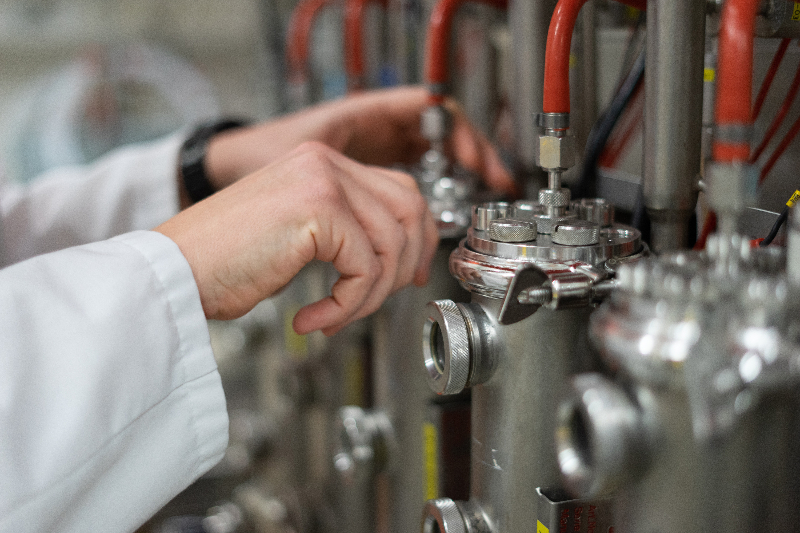Living cells form the backbone in many industrial bioprocesses and the number of products and applications are rapidly increasing. Examples are sustainable biofuels, antibiotics, hormones, food and food additives, alcoholic beverages, dyes and chemicals. Bioprocesses are also used in clean-up of waste streams of modern society. Wastewater from households, streets and industries are important examples, but also soil and polluted air can be treated by biological methods. To use living cells in this way, we need to understand how they are best used to get an economic, safe and sustainable process.
In this course you will learn how to design microbial cultivations, how to choose a medium, bioreactor and cultivation technique, as well as which analyses and calculations need to be carried out, to understand the results and to be able to compare it with alternative techniques. This includes:
Knowledge and understanding
- know and describe the principle historical development of bioproducts and bioprocesses and the characteristics of common production organisms.
- describe the content of different types of common media.
- be able to describe the flux leading to overflow metabolism in E.coli, S. cerevisiae and animal cells.
- understand why and how growth occurs and substrate is consumed in cultivation
- know and describe the common kinetic models for consumption of substrate, maintenance requirements and formation of different products categories.
- know and describe common types of bioreactors including the auxiliary equipment. Be able to describe the mixing patterns and the parameters that affects the mixing in those reactors.
- understand how oxygen and carbon dioxide is transported between gas and liquid in bioreactors and the parameters that affect its efficiency.
- know, describe and operate the common cultivation techniques used in bioprocessing.
Skills and abilities
- be able to calculate the composition of a minimal medium on basis of the components commonly used.
- be able to outline and describe simple structured models of the cellular metabolism.
- be able to calculate total, volumetric and specific activities and yields in bioprocesses, know the meaning of these concepts and use them to describe the process performance.
- be able to derive mass balances for cell, byproduct and product accumulation, substrate and oxygen consumption for different cultivation techniques.
- be able to set up Matlab simulations on basis of mass balances and relevant kinetic models.
- be able to draw the principal progress of process variables for the cultivation concepts.
- be able to plan, operate and evaluate the performance of bioprocesses.
- be able to perform oxygen transfer capacity measurements and be able to outline mixing time measurements in bioreactors.
- be able to speculate on how different environmental conditions affect growth and byproduct formation
- be able to discriminate on the use of a specific cultivation concept depending on its benefits and drawbacks in relation to the product and process requirements.
- be able to declare how variations in feed, stirring, airflow and cultivation volume affects the cultivation performance
Ability to judge and to adopt a standpoint
- be able to evaluate the reason to why growth ceases in batch cultivation
- be able to reflect on the effect on process economy with respect to choice of medium, bioreactor and cultivation technique for a specific process and product.
Prerequisites equivalent to BB1190 Gene technology and KE1180 Introduction to chemical engineering are recommended.
